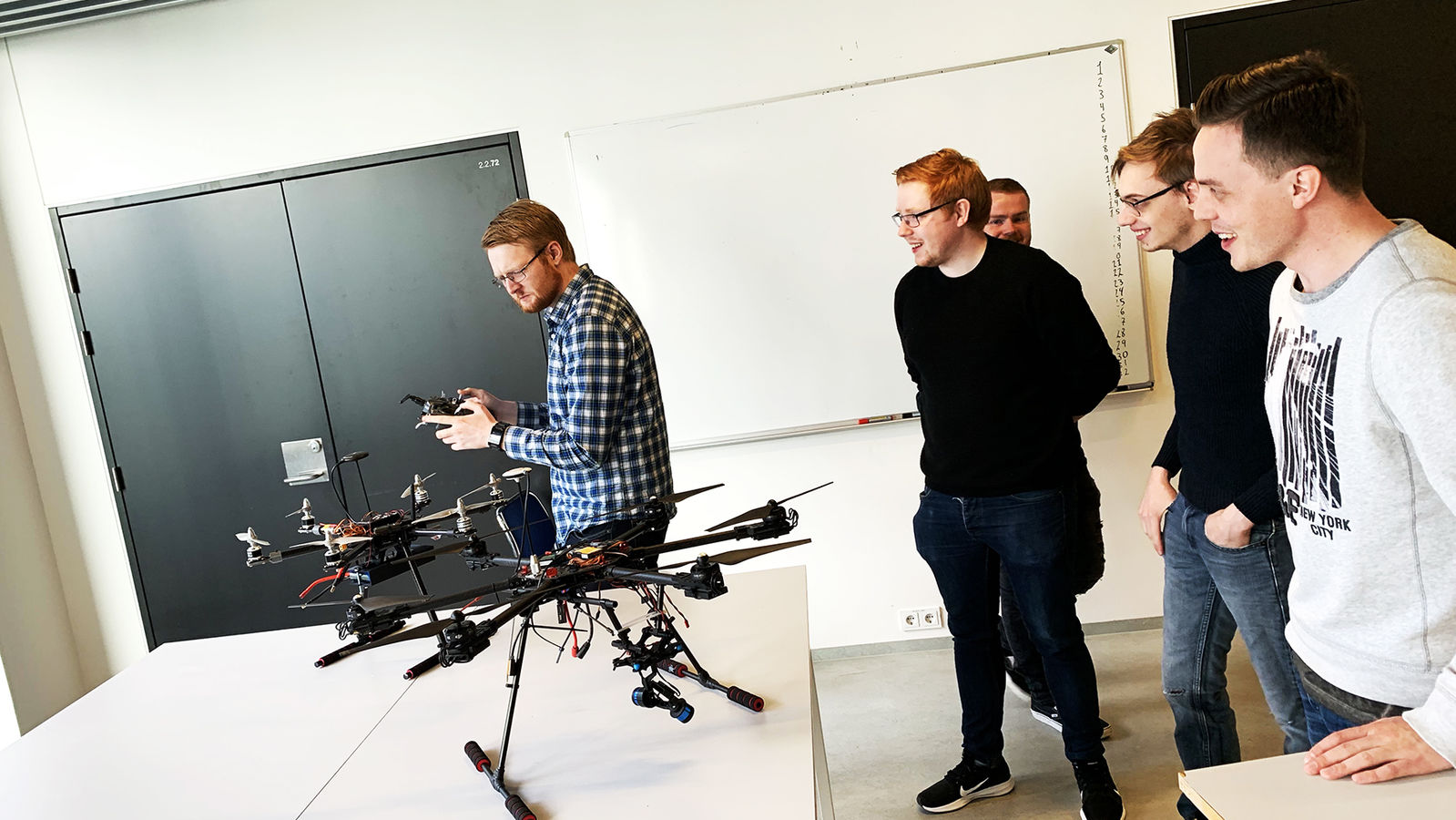RU students prepare for the next Mars exploration
Rovers for Mars exploration will be tested in Iceland during the summer with the participation of a group of RU students from the departments of Engineering and Applied Engineering. Their role is to assist Mission Control Space Services (MCSS) crew in charge of the SAND-E (Semi-Autonomous Navigation for Detrital Environments) project. The SAND-E project is NASA funded and the aim is to study Mars-like volcanic sand environments in advance of NASA's Mars 2020 rover mission to the red planet. The location of the testing will be at Lambahraun where the soil is similar to that on Mars.
A group of 12
It is Canadian company Mission Control Space Services that is coordinating the research in Iceland. The twelve students used their three-week practical course at the end of this semester to prepare for the arrival of the NASA scientists and MCSS staff. We met up with one half of the group in the RU Physics Lab.
"The researchers from MCSS are bringing an autonomous navigation rover prototype in July which will be stored here in the University and we are working on making the conditions for it as perfect as possible. We will help them with various preparations and also assist them in their research in the summer. At Lambahraun there is dry basalt sand and weathered balast lava fields, conditions that are comparable to the soil on Mars but rare here on earth. You can also find channels and riverbeds carved by the water coming from under the glacier nearby. These channels are similar to riverbed windings on Mars and are therefore of special interest to the research team." The team are also gathering data for a specialised MCSS software.
"We are looking forward to the summer" A part of the 12-strong group prepares for drone testing in RU´s Physics Lab.
Are we online?
In Iceland, the semi-autonomous navigation equipment will be tested for a Mars exploration rover. "We have been using drones to fly over the area and gather data which has been used to develop the software for the rover. There is also countless other practical matters we need to look into, like how the roads will be and if we have internet and phone signals in the area. But we are definitely looking forward to the summer."
Numerous research institutes
The research is a part of the aforementioned SAND-E project where the participants are, along with MCSS, Texas A&M University, NASA Johnson Space Center, Purdue University, Harvard University, MIT and Stanford University and Reykjavik University. The team is also being supported by Iceland's own ArcticTrucks who are helping with vehicles and lodging in the remote locations. The local group of university students has been working on the project under the guidance of Dr. Joseph Timothy Foley, assistant professor at RU´s Department of Engineering in the three-week course named Design X ("Hönnun X").


